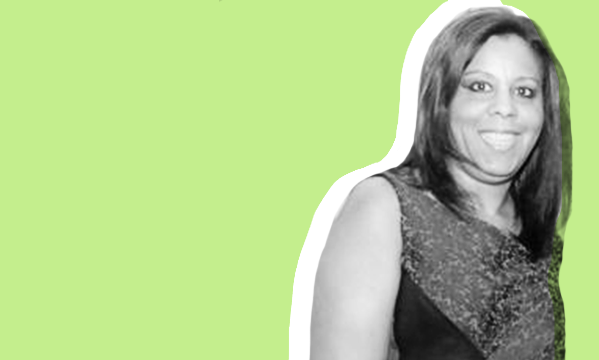This is a guest post that is part of a series featuring women leaders for Black Women’s Equal Pay Day, which falls on August 7, 2018.
Cheryl Green-Foster, New York Coalition of One Hundred Black Women
My name is Cheryl Green-Foster and I am the fifteenth president of the New York Coalition of One Hundred Black Women, founding chapter. I know I stand on the shoulders of our founders, twenty four dynamic Black Women Leaders and at my installation last year I vowed to continue our mission to work as an organized voice and advocate for Black Women and families. The New York Coalition of One Hundred Black Women was founded in 1970. The desire to organize grew out of the fermenting years of the 1960s. Against the backdrop of the events of the Civil Rights Movement and the jolt caused by the tragic deaths of Dr. Martin Luther King, Jr. and President John F. Kennedy, Black Women across the United States found themselves trying to gain and maintain acceptance into the Civil Rights and Women’s Rights Movements. The vision and spirit of the New York Coalition of One Hundred Black Women, Inc. continue to inspire women after 48 years of existence and the women of the Coalition remain steadfast to its motto of demonstrating Leadership By Example. As the leader, I must challenge everyone who supports equal pay for Black Women to demand more and work with other organizations, such as PowHer, to close the gender wage gap for Black Women and for all women.
During those turbulent times in 1967, Black Women working full time typically made only 43 cents to the dollar of white men. Fast forward fifty years and we’ve only progressed by 20 cents. We now make 63 cents to the dollar of white men. This is unacceptable. Black Women experience the wage gap at every education level. Today, while increasing numbers of Black Women are college educated, Black Women still earn lower wages in comparison to nearly every other racial and ethnic group in the United States.
For the past thirty nine years, we have provided a week long mentoring program for female college students from CUNY during spring break. This program includes workshops, seminars, and spending time with established professionals in their chosen fields. Many of these young women have never meet doctors, layers, engineers, etc. who look like them.
This program, which was created to give young women a realistic insight into life after college, is incomplete if we do not start to educate these young women about the gender inequity in pay. We will add additional workshops so they learn how to level the playing field, the best practices for gender pay equity in the workplace, their rights as a consumer to demand gender equity from the places who businesses they frequent and from elected officials at the local, state level before they give them their vote.
This gap harms the entire community because these lost wages mean that Black Women have less money to support themselves and their families and to save and invest for the future. More than eighty percent of Black mothers are the primary breadwinners for their families and their households rely heavily on their salaries to make ends meet. This contributes to the fact that more than a quarter of Black Women still live in poverty.
Please join me and spread the message on August 7th, Black Women’s Equal Pay Day 2018. Challenge everyone to support equal pay for Black Women and all women. If we eliminate the wage gap more families headed by Black Women will no longer live in poverty. This will improve our economy not just for Black Women and their families, but for all America.


